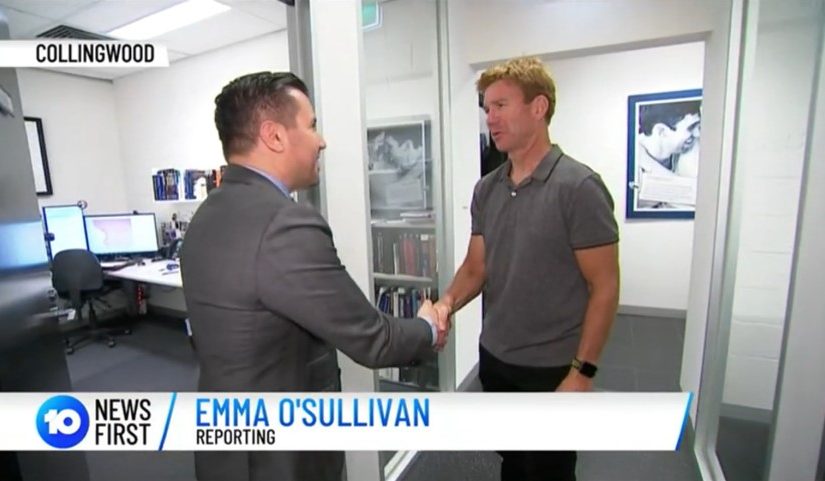A few days before Christmas, commercial pilot and competitive cyclist Iain Clark had an operation to remove cancer at the base of his tongue.
The unusual cancer case required a novel approach to surgery. Epworth HealthCare surgeon Ben Dixon used the da Vinci robot to perform the surgery. Unknown to Mr Clark, another doctor was also a vital part of the operation.
While Mr Clark was on the operating table, Anatomical Pathologist Dr Ciciulla took the tissue the surgeon cut away and froze it, sliced it to a fraction of a millimetre and examined it under a high-powered microscope. He could then tell the surgeon it was safe to conclude the operation as all the cancer had been removed.
This process takes 15-20 minutes and can only be performed by a highly skilled anatomical pathologist.
Head and neck cancers can be very small and in areas of the body that are hard to access, heightening the need for pathology during surgery to be sure that all the cancer is removed.
Using these ‘frozen sections’ in surgery minimises the need for a second operation to remove any cancer left behind. It also gives the patient the best chance of a good recovery with less need for follow up treatments such as radiation.
Although very few patients will ever meet the pathologist who performs this vital work, Mr Clark was reunited with Dr Ciciulla, who hosted a tour of the laboratory and showed him samples of his tumour under a microscope.
Channel Ten News covered the tour and described it as “Pathologists never usually meet their patients, and patients never usually see their cancer. Unsung hero of the medical world, Anatomical Pathologist John Ciciulla, played a vital role in saving the life of pilot Iain Clark”.
Watch the Channel 10 News clip here.

